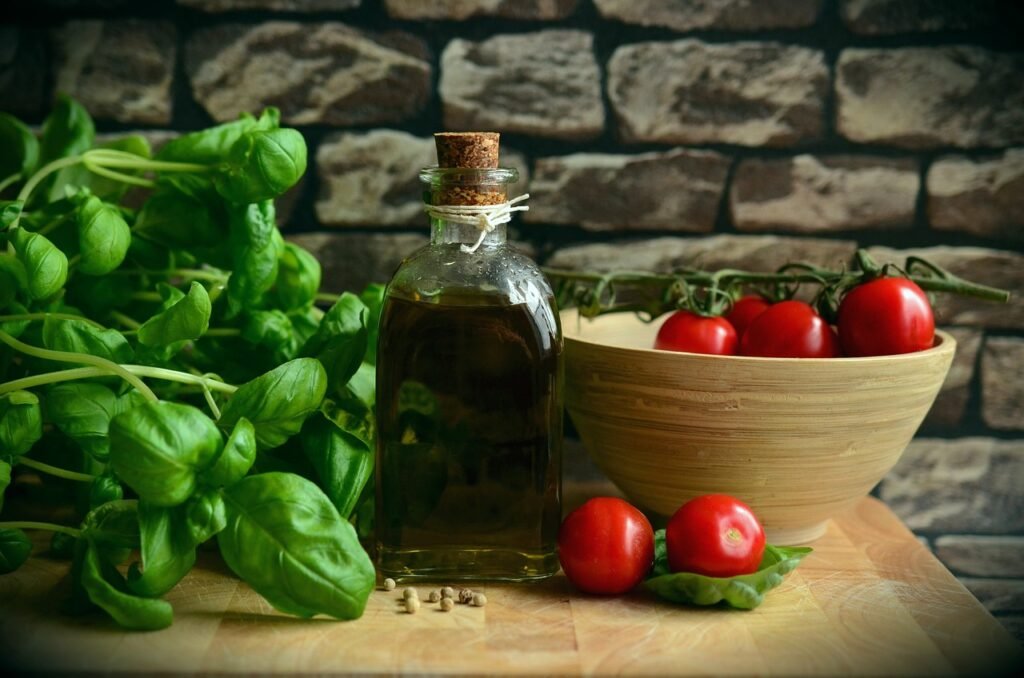In the vast world of Chinese vocabulary, starting with the basics is always helpful. As we venture into the kitchen, it’s a chance to familiarize yourself with common words and phrases you’d encounter in a typical Chinese household or restaurant. From appliances to utensils and common ingredients, this article will provide you with essential vocabulary to navigate the culinary heart of a Chinese home.
Table of Contents
ToggleChinese words related to kitchen
厨房 (chú fáng) – Kitchen
冰箱 (bīng xiāng) – Refrigerator
炉子 (lú zǐ) – Stove
微波炉 (wēi bō lú) – Microwave
水壶 (shuǐ hú) – Kettle
盘子 (pán zǐ) – Plate
碗 (wǎn) – Bowl
刀 (dāo) – Knife
叉子 (chā zǐ) – Fork
勺子 (sháo zǐ) – Spoon
Chinese words related to seasoning
酱油 Jiàngyóu – soy sauce
盐 yán – salt
醋 cù – vinegar
胡椒 hújiāo- pepper
香油 xiāngyóu – sesame oil
油 yóu – oil
糖 táng – sugar
淀粉 diànfěn – starch
味精 wèijīng – gourmet powder
辣椒 làjiāo- chilli
Chinese words related to cooking methods
煎jiān – pan-fry
炒chǎo – stir-fry
炸zhà – deep-fry
烩huì – stew
熏xūn – smoke
煨wēi – simmer
煮zhǔ – boil
烘hōng – bake;
烤kǎo – roast
蒸zhēng – steam
红烧hóngshāo – braise
涮shuàn – dip-boil
腌yān – pickle
捣碎dǎo suì – mash
卤lǔ – marinate
水煮shuǐ zhǔ – poach
Some phrases
传统的北京烤鸭是在果木炉子里烤制而成的。Chuántǒng de běijīng kǎoyā shì zài guǒmù lúzǐ lǐ kǎo zhì ér chéng de.- Traditionally, Peking duck is roasted over wood from fruit trees.
小火煨四季豆,要在装盘前确认豆子煮熟了。Xiǎo huǒ wēi sìjì dòu, yào zài zhuāng pán qián quèrèn dòuzi zhǔ shúle. – Gently simmer the green beans on low heat and ensure they are fully cooked before placing them on a plate.

Keep in mind that understanding the culture that surrounds Chinese food is just as important as learning the vocabulary while navigating Chinese kitchens or speaking about cooking in Mandarin. Every term holds a piece of Chinese history, customs, and culinary knowledge unique to that culture. Therefore, the next time you find yourself in a kitchen with Chinese speakers, dazzle them with your language and enjoy the culinary experience!
Chinese Vocabulary | In the Kitchen | Frequently Asked Questions (FAQs)
Why is the character 子 (zǐ) frequently used in kitchen vocabulary?
Answer: 子 (zǐ) is a common suffix in Chinese that often gives a diminutive or endearing feel to the main word. It can be found in many words beyond kitchen vocabulary to make them sound more colloquial or familiar.
Is there a difference between 炉子 (lú zǐ) and 微波炉 (wēi bō lú)?
Answer: Yes! 炉子 (lú zǐ) generally refers to a stove or furnace, whereas 微波炉 (wēi bō lú) specifically means “microwave oven.”
How is the Chinese kitchen setup different from Western kitchens?
Answer: Chinese kitchens often emphasize wok cooking, steaming, and boiling, so they might prioritize gas burners and steamers. They might also have specific tools like cleavers, bamboo steamers, and rice cookers that are less common in Western kitchens.
Is using chopsticks and forks/spoons common in a Chinese kitchen?
Answer: In Chinese culture, chopsticks (筷子 kuàizi) are the primary utensils for eating. However, spoons (勺子 sháo zǐ) are often used for soups or broths. Forks might be less common in traditional settings but can be found in modern households, especially with the influence of Western dining habits.
Contact our head teacher, Chen Huimin, at info@lcchineseschool.com if you want to learn Chinese or have additional questions about our Chinese programs.
Learn about our Internship Program in China.
Learn about holidays in China in 2023.
Get free Chinese learning resources.







